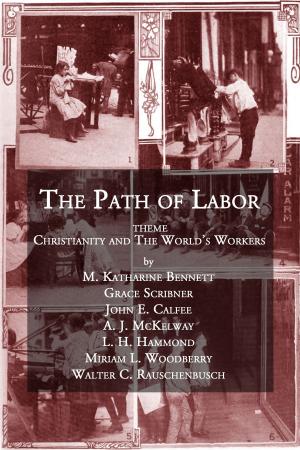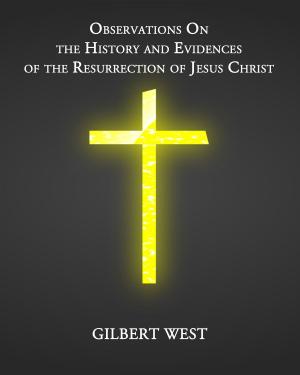| Author: | G. Campbell Morgan | ISBN: | 1230001945164 |
| Publisher: | CrossReach Publications | Publication: | September 30, 2017 |
| Imprint: | Language: | English |
| Author: | G. Campbell Morgan |
| ISBN: | 1230001945164 |
| Publisher: | CrossReach Publications |
| Publication: | September 30, 2017 |
| Imprint: | |
| Language: | English |
NEVER did the disciples prefer a more important request than when they said “Lord, teach us to pray”: and no petition was more graciously answered. The church to-day needs to bring that petition first of all, but she needs to do so remembering that she already has the answer in all spaciousness and clearness. Whatever may have been the case with the first disciples it is certainly true of us that before we “call” He “answers.”
I have chosen as the general title of this book “The Practice of Prayer,” because the purpose of its publication is preëminently practical. Any discussion of the doctrine of prayer which does not issue in the practice of prayer is not only not helpful, it is dangerous. At the same time that practice will be greatly helped by an apprehension of the relative Christian doctrine.
That there is need for its consideration is granted on every hand. Side by side with a great enrichment there is a wide-spread impoverishment in the Church of God. The consciousness of wealth creates the sense of poverty, and it is because we rejoice in our gain that we mourn over our lack.
As to enrichment, there can be no question that the church’s appreciation of Jesus Christ is keener and more spacious to-day than it has ever been. There is to-day a wide-spread consciousness of the human Christ and this has brought assurance of His interest in all departments of human life. Coincidentally with this there has arisen a conviction of His universality, and while rejoicing as never in the warmth and nearness of the Flesh, we have come to a larger apprehension of the infinitude of the Word. In practical equipment for service too the Church in men, in money, and in methods, is far in advance of any preceding age.
Yet in all these things there is a sense of lack and of poverty. While the sense of the greatness of Christ is larger, the ability to bring men into loving, saving touch with Him sometimes seems less. The men at His disposal are many, but the Church lacks energy to send them forth. Money is more freely given than ever, and yet the greater part of the possessions of the saints is still retained for their own use. The methods are multiplied, and yet one cannot help the conviction that many of our organizations are fungus growths, sapping the Church’s life and contributing nothing to her fruitfulness.
We are profoundly conscious of lack. Everywhere there is a double sense, that of power and of paralysis. We have heard the sound of the going in the top of the mulberry trees, but the wind of God seems to tarry. We saw the flaming of the bush among the Welsh mountains a little while ago, but we have seen it in England. All about us are indifferent masses. We still mourn the dearth of conversions, and are painfully conscious of the languishing missionary spirit. Where is the lack? That is a larger question than it is the purpose of this book to discuss. Nevertheless, I think it may broadly be stated that the supreme need of the Church is the realization experimentally of her relationship to God by the Holy Spirit. In the interaction of life and prayer will be found the secret of power, and the realization of fellowship with God will never be more than a theory save as prayer becomes a practice. I am particularly anxious to write nothing censorious or that fails in recognition of all the best things still to be found against us. I am profoundly conscious that there is a great deal of prayer on the highest plane. God has His intercessors everywhere. They are to be found often in unexpected places, in men and women who have learned the secret, and who by familiar intercourse with God are channels of blessing to men: but the majority of us are not praying. While I thank God for the prayers being offered I feel that it is of the utmost importance that the whole Church should know the secret of prevailing prayer, not only as a theory, but in practice.
NEVER did the disciples prefer a more important request than when they said “Lord, teach us to pray”: and no petition was more graciously answered. The church to-day needs to bring that petition first of all, but she needs to do so remembering that she already has the answer in all spaciousness and clearness. Whatever may have been the case with the first disciples it is certainly true of us that before we “call” He “answers.”
I have chosen as the general title of this book “The Practice of Prayer,” because the purpose of its publication is preëminently practical. Any discussion of the doctrine of prayer which does not issue in the practice of prayer is not only not helpful, it is dangerous. At the same time that practice will be greatly helped by an apprehension of the relative Christian doctrine.
That there is need for its consideration is granted on every hand. Side by side with a great enrichment there is a wide-spread impoverishment in the Church of God. The consciousness of wealth creates the sense of poverty, and it is because we rejoice in our gain that we mourn over our lack.
As to enrichment, there can be no question that the church’s appreciation of Jesus Christ is keener and more spacious to-day than it has ever been. There is to-day a wide-spread consciousness of the human Christ and this has brought assurance of His interest in all departments of human life. Coincidentally with this there has arisen a conviction of His universality, and while rejoicing as never in the warmth and nearness of the Flesh, we have come to a larger apprehension of the infinitude of the Word. In practical equipment for service too the Church in men, in money, and in methods, is far in advance of any preceding age.
Yet in all these things there is a sense of lack and of poverty. While the sense of the greatness of Christ is larger, the ability to bring men into loving, saving touch with Him sometimes seems less. The men at His disposal are many, but the Church lacks energy to send them forth. Money is more freely given than ever, and yet the greater part of the possessions of the saints is still retained for their own use. The methods are multiplied, and yet one cannot help the conviction that many of our organizations are fungus growths, sapping the Church’s life and contributing nothing to her fruitfulness.
We are profoundly conscious of lack. Everywhere there is a double sense, that of power and of paralysis. We have heard the sound of the going in the top of the mulberry trees, but the wind of God seems to tarry. We saw the flaming of the bush among the Welsh mountains a little while ago, but we have seen it in England. All about us are indifferent masses. We still mourn the dearth of conversions, and are painfully conscious of the languishing missionary spirit. Where is the lack? That is a larger question than it is the purpose of this book to discuss. Nevertheless, I think it may broadly be stated that the supreme need of the Church is the realization experimentally of her relationship to God by the Holy Spirit. In the interaction of life and prayer will be found the secret of power, and the realization of fellowship with God will never be more than a theory save as prayer becomes a practice. I am particularly anxious to write nothing censorious or that fails in recognition of all the best things still to be found against us. I am profoundly conscious that there is a great deal of prayer on the highest plane. God has His intercessors everywhere. They are to be found often in unexpected places, in men and women who have learned the secret, and who by familiar intercourse with God are channels of blessing to men: but the majority of us are not praying. While I thank God for the prayers being offered I feel that it is of the utmost importance that the whole Church should know the secret of prevailing prayer, not only as a theory, but in practice.















